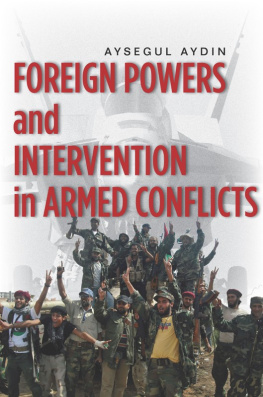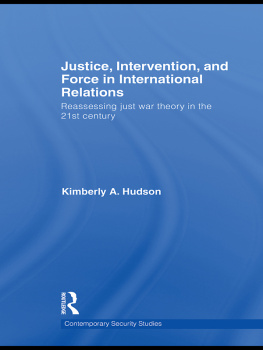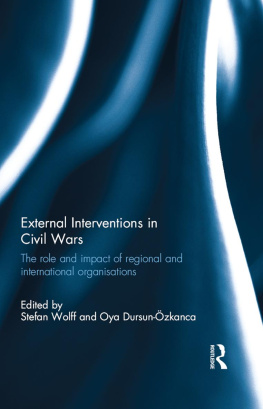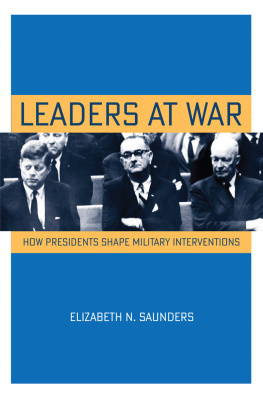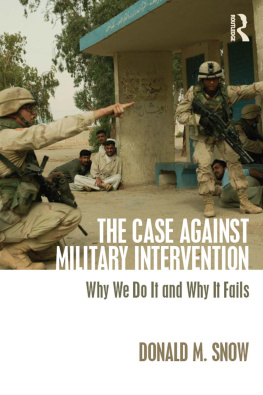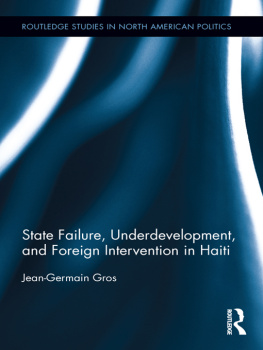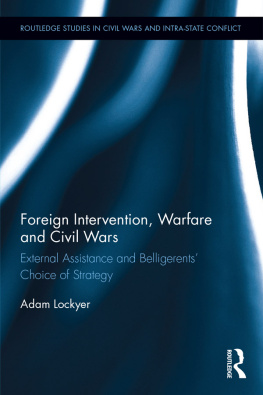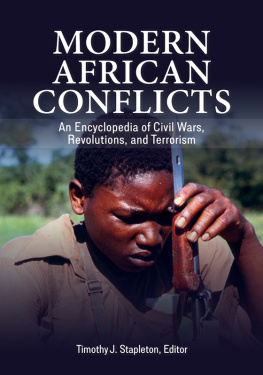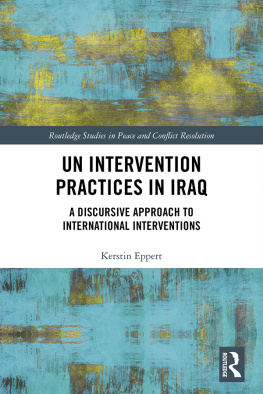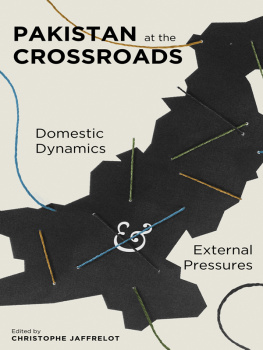Stanford University Press
Stanford, California
2012 by the Board of Trustees of the Leland Stanford Junior University.
All rights reserved.
No part of this book may be reproduced or transmitted in any form or by any means, electronic or mechanical, including photocopying and recording, or in any information storage or retrieval system without the prior written permission of Stanford University Press.
Printed in the United States of America on acid-free, archival-quality paper
Library of Congress Cataloging-in-Publication Data
Aydin, Aysegul, author.
Foreign powers and intervention in armed conflicts/Aysegul Aydin.
pages cm
Includes bibliographical references and index.
ISBN 978-0-8047-8281-4 (cloth : alk. paper)
ISBN 978-0-8047-8294-4 (ebook)
1. WarEconomic aspects. 2. Politics and war. 3. Intervention (International law)Economic aspects. 4. International relations. I. Title.
HB195.A95 2012
Special discounts for bulk quantities of Stanford Security Studies are available to corporations, professional associations, and other organizations. For details and discount information, contact the special sales department of Stanford University Press.
Tel: (650) 736-1782, Fax: (650) 736-1784
Typeset by Thompson Type in 10/14 Minion
Foreign Powers
and Intervention
in Armed Conflicts
Aysegul Aydin
Stanford Security Series
An Imprint of Stanford University Press
Stanford, California
CONTENTS
TABLES AND FIGURE
Tables
Figure
ACKNOWLEDGMENTS
SCHOLARS HAVE LONG SEARCHED for the economic determinants of intervention behavior in the economic theories of imperialism. In this endeavor, few considered economic liberalism as a venue. Intervention studies, on the other hand, systematically lacked a conceptual and theoretical framework that discusses explicitly what intervention is and why states build interest in strangers conflicts. This book takes over this task. Its approach to liberalism as a paradigm that can explain several forms of state behavior, including forceful and peaceful ones, will be an unusual starting point for some of us. Yet the books ability to bring together several different literatures in international security and international relations theory in a new model of intervention will pose compelling questions for a new generation of security scholars.
These pieces would not come together if it was not for the outstanding scholarship of several people whose work has profoundly influenced this book. Prominent among these is Patrick Regan. Many aspects of the book, including its title, were inspired by Pats Civil Wars and Foreign Powers. Pats mentorship throughout these years remained a tremendous force in my professional development and my understanding of intervention. I am truly indebted to him for all his encouragement in this project as well as in others that I have engaged in my career. Benjamin Fordham was instrumental in the formulation of the ideas presented here and provided invaluable feedback in the projects initial stages. I wish I could write this book with the skill that he has written Revisionism Reconsidered. David H. Clarks work on foreign policy substitution played a major role in the multinomial choice models adopted in this book. I also took several methodology courses with Dave that he taught with supreme clarity and rigor. I hope the quantitative chapters will live up to his expectations.
I owe special thanks to my colleagues who contributed to this project at various stages. Steve Chan was a constant source of support at the University of Colorado. He graciously commented on several drafts of this book. Most importantly, his belief in my scholarly skills never wound down. Timur Kuran was too generous with his time in reading this book as well as my other projects. I am most indebted to him for taking an interest in my research. His professional support remains an invaluable asset in my career.
This books empirical chapters benefited immensely from the data efforts of my colleagues. Renato Corbettas data on interventions in interstate conflicts form the backbone of the quantitative work undertaken here. Renato also kindly read and provided very helpful feedback. The analysis of preferential trade arrangements would not be possible without the help of Moonhawk Kim, who answered my questions and guided me through the data. Jessica Weeks shared her impressive data on political institutions. Andrew Kerner shared his dyadic FDI data, which helped me to navigate through the IMF statistics.
I am grateful to my editor, Dr. Geoffrey Burn, for his support and enthusiasm throughout the review and production process. His continuing interest in the project allowed me to cross the finish line. Jessica Walsh of the Stanford University Press worked very hard to keep the review process up and running. I also want to thank the anonymous reviewers, particularly R2, whose constructive comments motivated a much more comprehensive, yet focused and succinct, framework on intervention.
I prepared the final manuscript while residing at the Kroc Institute for International Peace Studies of the University of Notre Dame. I want to thank my colleagues, especially Peter Wallensteen, Christian Davenport, and Scott Appleby, and the staff at Kroc for giving me the opportunity to complete the manuscript in an environment that observes the highest academic standards.
My family, Gulumser and Halil, endured the troubles of this long and treacherous road. I am hoping that they will also have the opportunity to enjoy the victory. Cem substantially challenged my understanding of security studies with his exceptional analytical skills and commitment to the profession. I owe him a professional and a personal debt.
Aysegul Aydin
South Bend, IN
INTRODUCTION
In the growth of a general war, the entry of additional nations was often like the fisherman who intervened while the waterbirds fought or waterbirds who pounced while the fisherman slept.
MAJOR WARS IN THE HISTORY OF NATIONS have been characterized by the involvement of foreign powers. In the nineteenth century, the two deadliest conflicts involved external states as interveners. Great Britain, France, and Italy entered the Crimean War (18541856) on the side of the Ottoman Empire against Russia. Russian claims as a protectorate over the Ottoman Greeks and its insistence on the neutrality of Istanbul to great powers strengthened the Concert of Four Powers, leading to a consensus on the possible responses to Russian aggression. British government claimed that nothing is more calculated to precipitate [a Turkish catastrophe] than the constant prediction of its being close at hand.
A decade later, Uruguay and Argentina built the Triple Alliance with Brazil (1866) against an expansionist Paraguay and defeated the Paraguayan dictator Francisco Solano Lopez in the deadliest war in Latin America. The unmatched military and economic power of the BrazilArgentina alliance inflicted tremendous economic costs and human casualties on Paraguay, wiping out half of its population.
Similarly, in the twentieth century, much ink was spilled on wars such as the Balkan wars, two world wars, the Korean War, and the Gulf War, which had an undeniable but mostly overlooked international dimension. While the shadow of Turks united Balkan states against the Ottoman Empire in the First Balkan War (1912), they were soon to be divided on territorial issues, giving the Ottomans a chance to double the territory that they had retained with the Treaty of London (1913). In the Second Balkan War, the Ottoman Empire intervened against Bulgaria and accrued the highest casualties of the war to secure the return of Kirk Kilisse, Lule Burgas, and Adrianople, which Bulgarians had previously captured with the help of the Balkan alliance.

